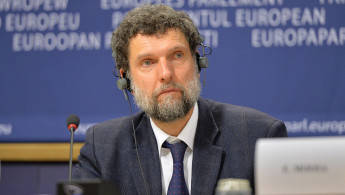Turkey summons 10 ambassadors over Kavala release call
Turkey summoned the ambassadors of 10 countries, including Germany and the United States, after they called for the release of a civil society leader, a Turkish diplomatic source said Tuesday.
Parisian-born philanthropist and activist Osman Kavala, 64, has been in jail without conviction since 2017 in a case that has fanned tensions with the West.
The Turkish activist faces a string of charges linked to 2013 anti-government protests and a failed military putsch in 2016. Kavala denies the accusations.
Rights groups and some Western governments view his detention as a symbol of President Recept Tayyip Erdogan's growing intolerance of dissent.
In a statement Monday, Canada, Denmark, Finland, France, Germany, the Netherlands, New Zealand, Norway, Sweden and the US called for a "just and speedy resolution to his case".
"The continuing delays in his trial... cast a shadow over respect for democracy, the rule of law and transparency in the Turkish judiciary system," they said.
The embassies called on Turkey to follow the rulings of the Council of Europe, a human rights body it joined in 1950.
The Council of Europe has warned that it would launch disciplinary proceedings against Turkey "in the event that (Kavala) is not released before" the human rights body's next meeting on November 30-December 2.
Kavala's next court hearing is expected on November 26.
The ambassadors were due to arrive at the foreign ministry in Ankara on Tuesday morning, the Turkish source told AFP.
Turkish Interior Minister Suleyman Soylu hit out at the embassies' statement on Twitter late Monday.
"It is not acceptable for ambassadors to make a recommendation or suggestion to the judiciary for an ongoing case," Soylu said.
"Your recommendation and suggestion throws a shadow over your understanding of law and democracy."
Turkish Justice Minister Abdulhamit Gul late Monday said that "no ambassador had the right to make a recommendation or suggestion to our courts" on Twitter.
"It is this ignorance of limits and boundaries that throws a shadow over the rule of law," Gul added.





 Follow the Middle East's top stories in English at The New Arab on Google News
Follow the Middle East's top stories in English at The New Arab on Google News


